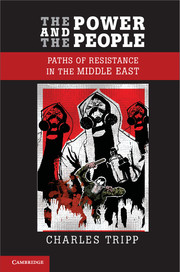Book contents
- Frontmatter
- Contents
- List of Illustrations and Credits
- Acknowledgements
- Glossary
- List of Abbreviations
- Introduction
- 1 State Capture and Violent Resistance
- 2 Contesting Public Space
- 3 Imposition and Resistance in Economic Life
- 4 Body Politics
- 5 History Wars
- 6 Symbolic Forms of Resistance
- Conclusion
- Notes
- Bibliography and Further Reading
- Index
3 - Imposition and Resistance in Economic Life
Published online by Cambridge University Press: 05 January 2013
- Frontmatter
- Contents
- List of Illustrations and Credits
- Acknowledgements
- Glossary
- List of Abbreviations
- Introduction
- 1 State Capture and Violent Resistance
- 2 Contesting Public Space
- 3 Imposition and Resistance in Economic Life
- 4 Body Politics
- 5 History Wars
- 6 Symbolic Forms of Resistance
- Conclusion
- Notes
- Bibliography and Further Reading
- Index
Summary
RESISTING THE IRON CAGE
Burning buses, smashed storefronts, the whiff of tear gas and the crack of rubber-coated steel bullets became familiar features of city life across many parts of the Middle East in the first half of 2011. But they had also been regular in episodic occurrences from Morocco in the west to Jordan in the east towards the end of the twentieth and the beginning of the twenty-first centuries. In January 1977, the ‘bread riots’ shook Cairo, Alexandria and other Egyptian cities. The protestors mocked the then president Anwar Sadat with slogans like ‘Wain al-futur, ya batal al-`ubur?’ [Hero of the crossing, where’s our breakfast?], putting his military prowess of 1973 into the balance against the sudden price rises he had caused by abruptly removing food subsidies. A similar picture had developed, for very similar reasons, in Casablanca in June 1981. Rioters took hold of the commercial city centre, attacking banks, shops and symbols of government authority. They were expressing their outrage both at the government’s removal of subsidies on basic foodstuffs and at its inability to provide jobs. Likewise, in Algeria in October 1988, widespread rioting paralysed the cities. Young Algerians – labelled ‘hittistes’, since they seemed to have nothing better to do than to prop up the walls [ha’it in Arabic] – protested vehemently at their dismal employment prospects and at the impoverishment of the population in this oil-rich state. Symbolically they tore down the national flag of the revolution and hoisted an empty couscous sack in its place. In 1989, riots of a similar kind in Ma`an, Jordan, brought down the government and forced the king to reinstate the Jordanian parliament.
- Type
- Chapter
- Information
- The Power and the PeoplePaths of Resistance in the Middle East, pp. 134 - 175Publisher: Cambridge University PressPrint publication year: 2013



